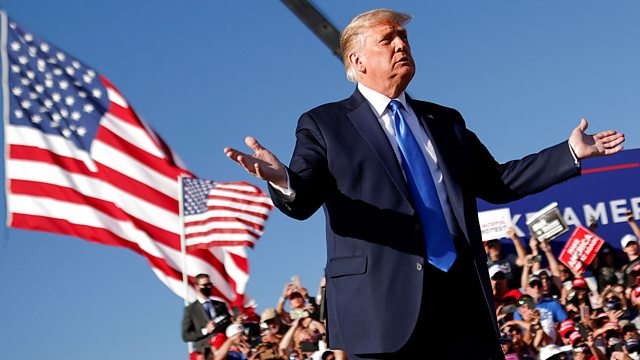
Image Source: bbc.co.uk
The presidency of Donald Trump marked a pivotal moment in American history, stirring both fervent support and vehement opposition. Analyzing its impact from a UPSC perspective reveals a complex tapestry of events that led to escalating chaos across various realms.
Political Unrest and Division
Trump's unorthodox governance style and confrontational rhetoric polarized the political landscape, deepening the chasm between Republicans and Democrats. The inability to find common ground on critical issues intensified gridlock within Congress, impeding legislative progress and fostering an environment of hostility and mistrust.
International Relations
His foreign policy decisions, characterized by abrupt shifts and unpredictability, strained alliances and fueled global uncertainty. Trade wars, withdrawal from international agreements, and contentious diplomatic exchanges reshaped the geopolitical landscape, prompting concerns about the stability of longstanding alliances.
Social and Cultural Turmoil
Trump's presidency magnified social and cultural fault lines, sparking debates on issues ranging from immigration policies to racial tensions. His divisive rhetoric often exacerbated societal fissures, leading to protests, clashes, and heightened sensitivity surrounding identity politics.
Economic Policies and Impact
The implementation of economic policies, including tax reforms and deregulation, yielded mixed outcomes. While some sectors experienced growth, others grappled with uncertainties, contributing to economic volatility and disparities.
Conclusion
The Trump presidency undeniably left an indelible mark on American society and global affairs. Its repercussions, viewed through the lens of the UPSC exam, offer a multifaceted understanding of how leadership choices can significantly influence the trajectory of a nation and the world.
As future leaders and policymakers prepare to navigate the complexities of governance, the lessons drawn from this period serve as a testament to the imperative of responsible leadership and the far-reaching implications of political decisions.